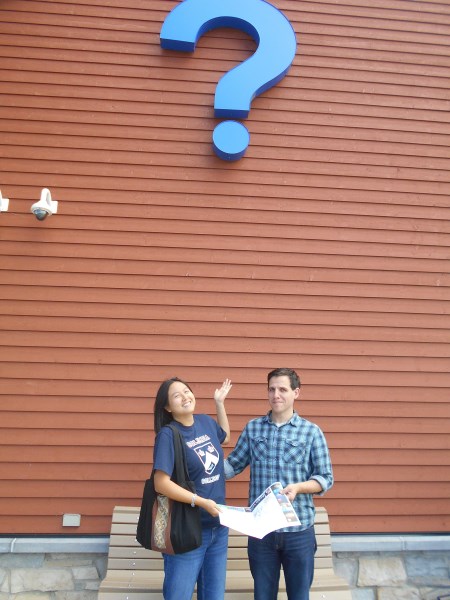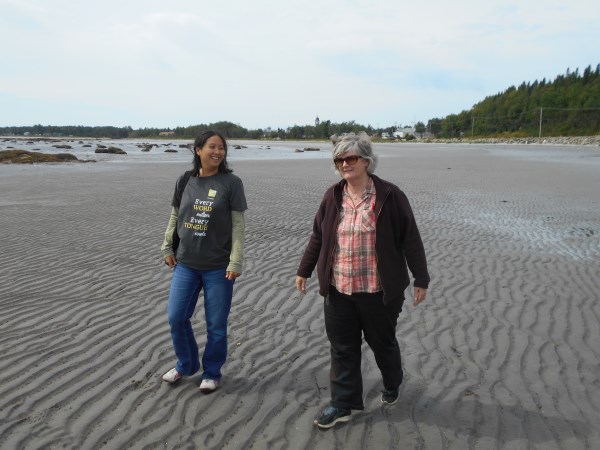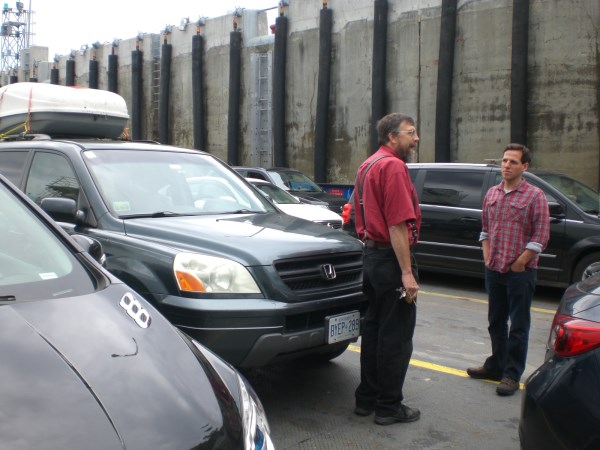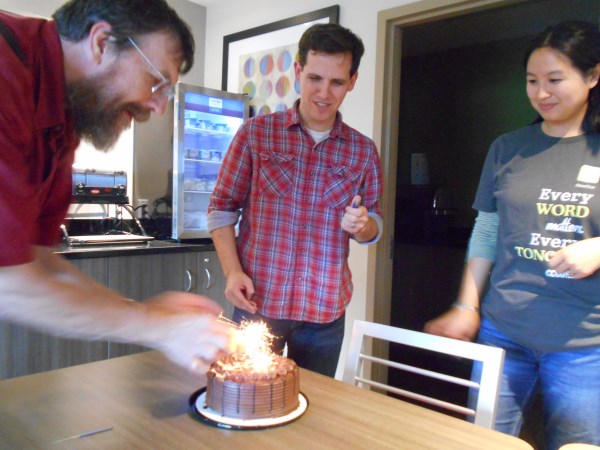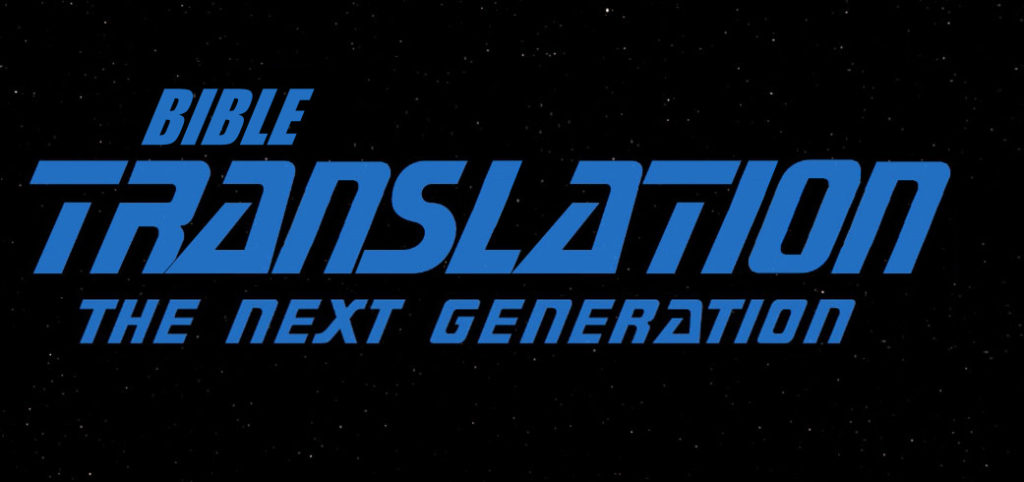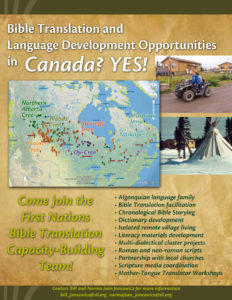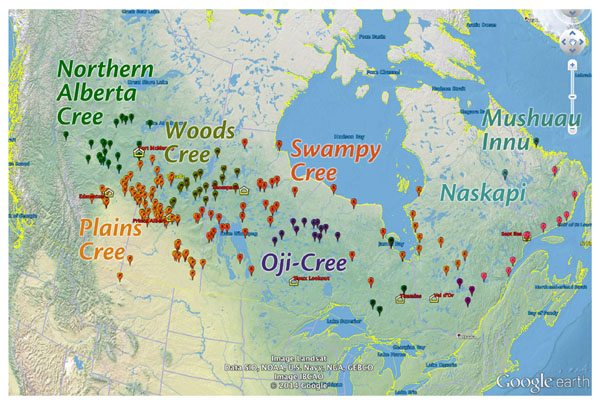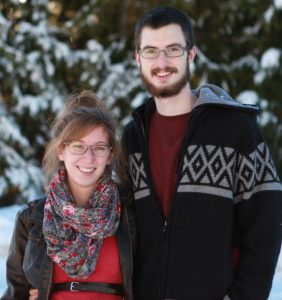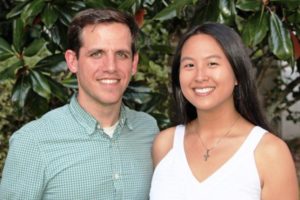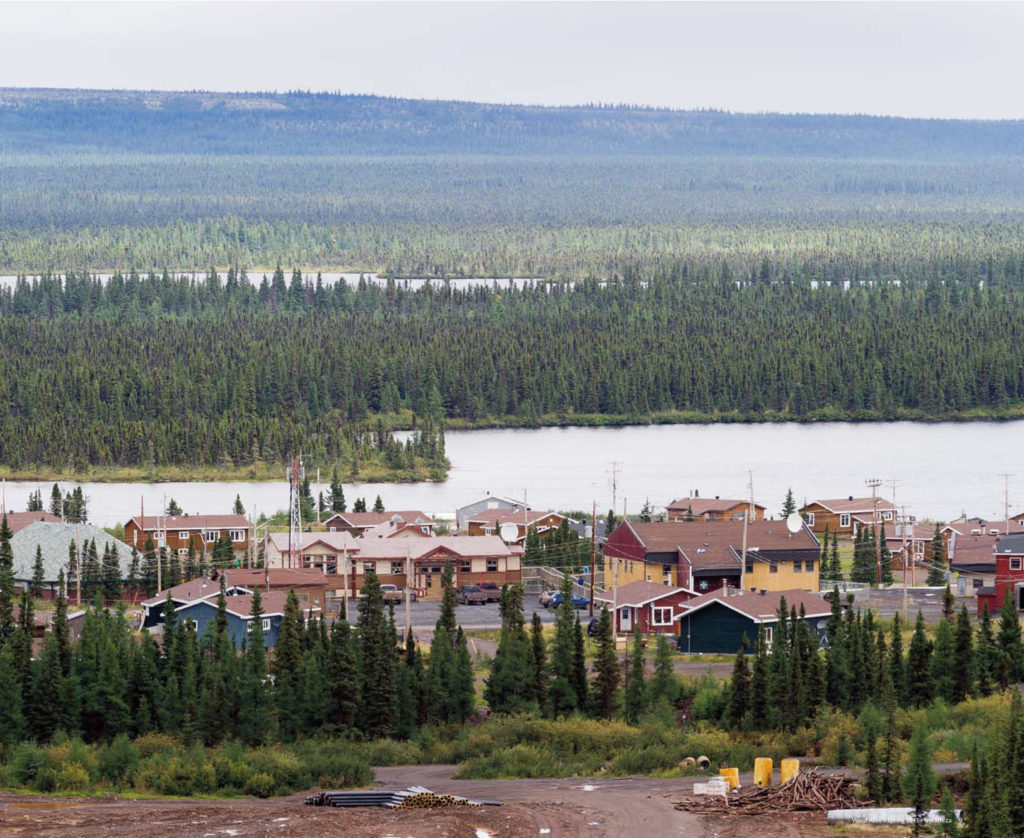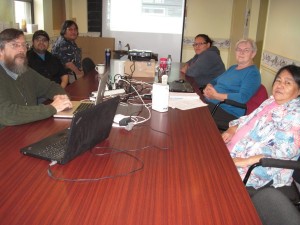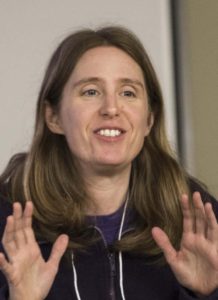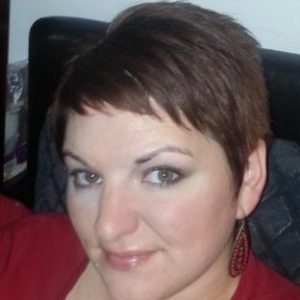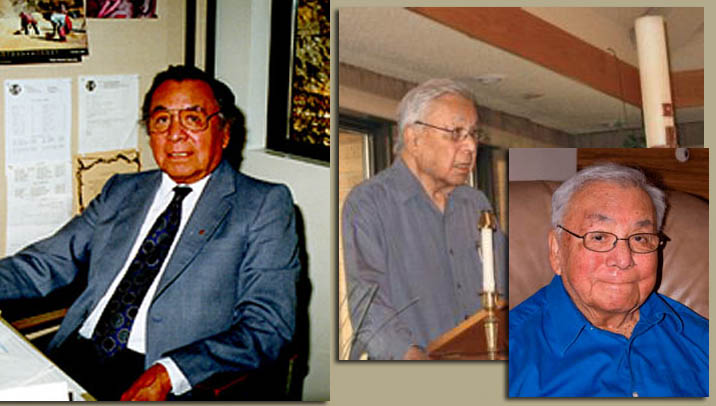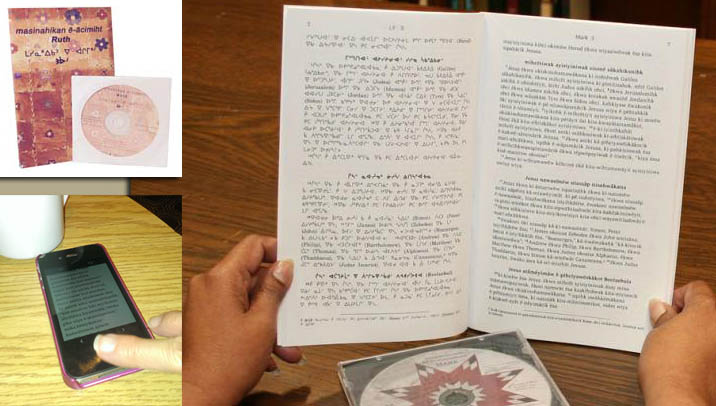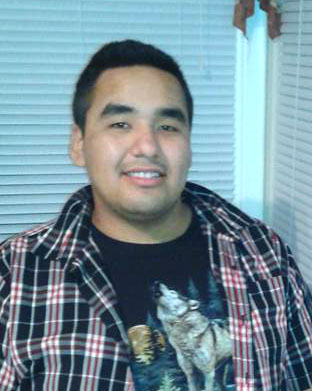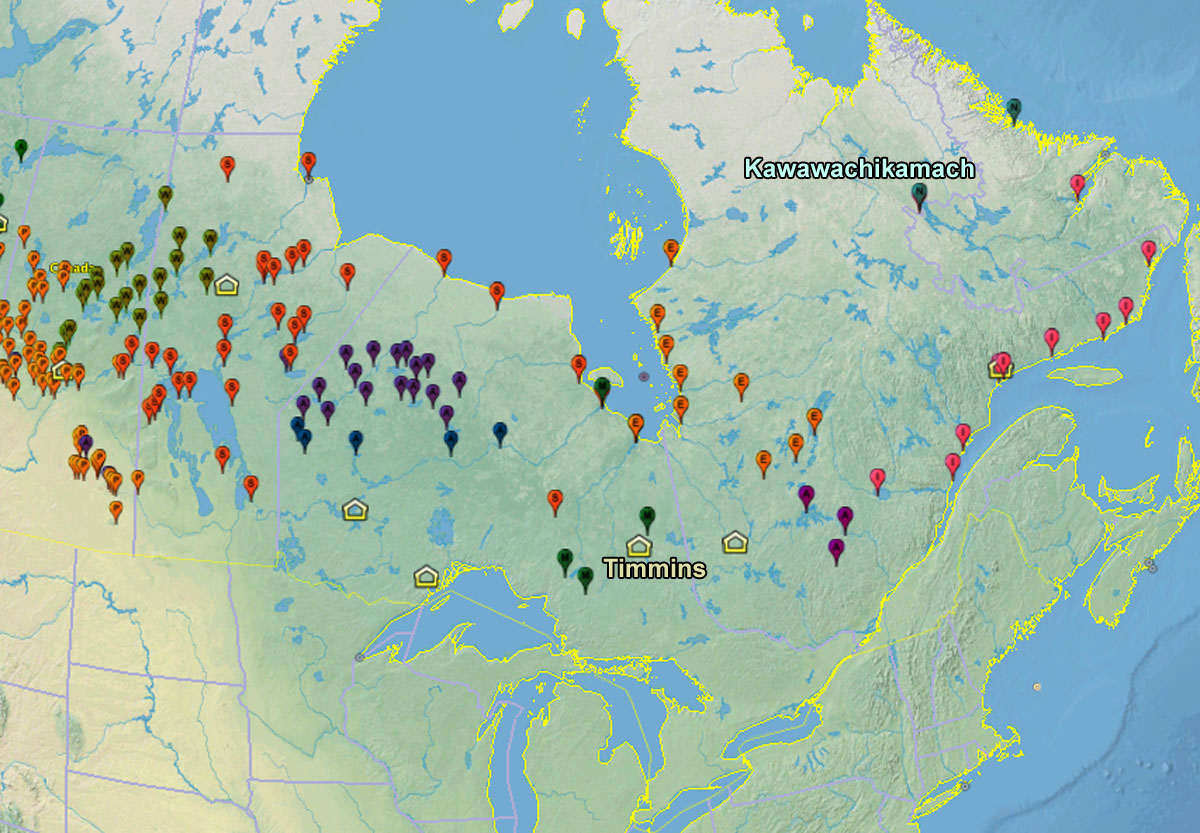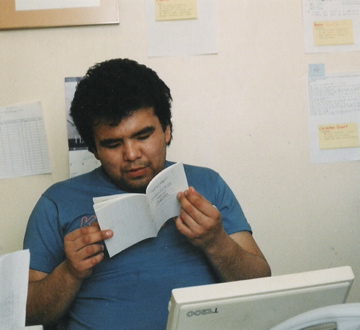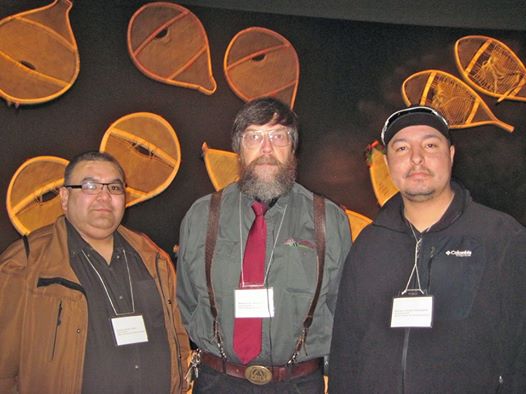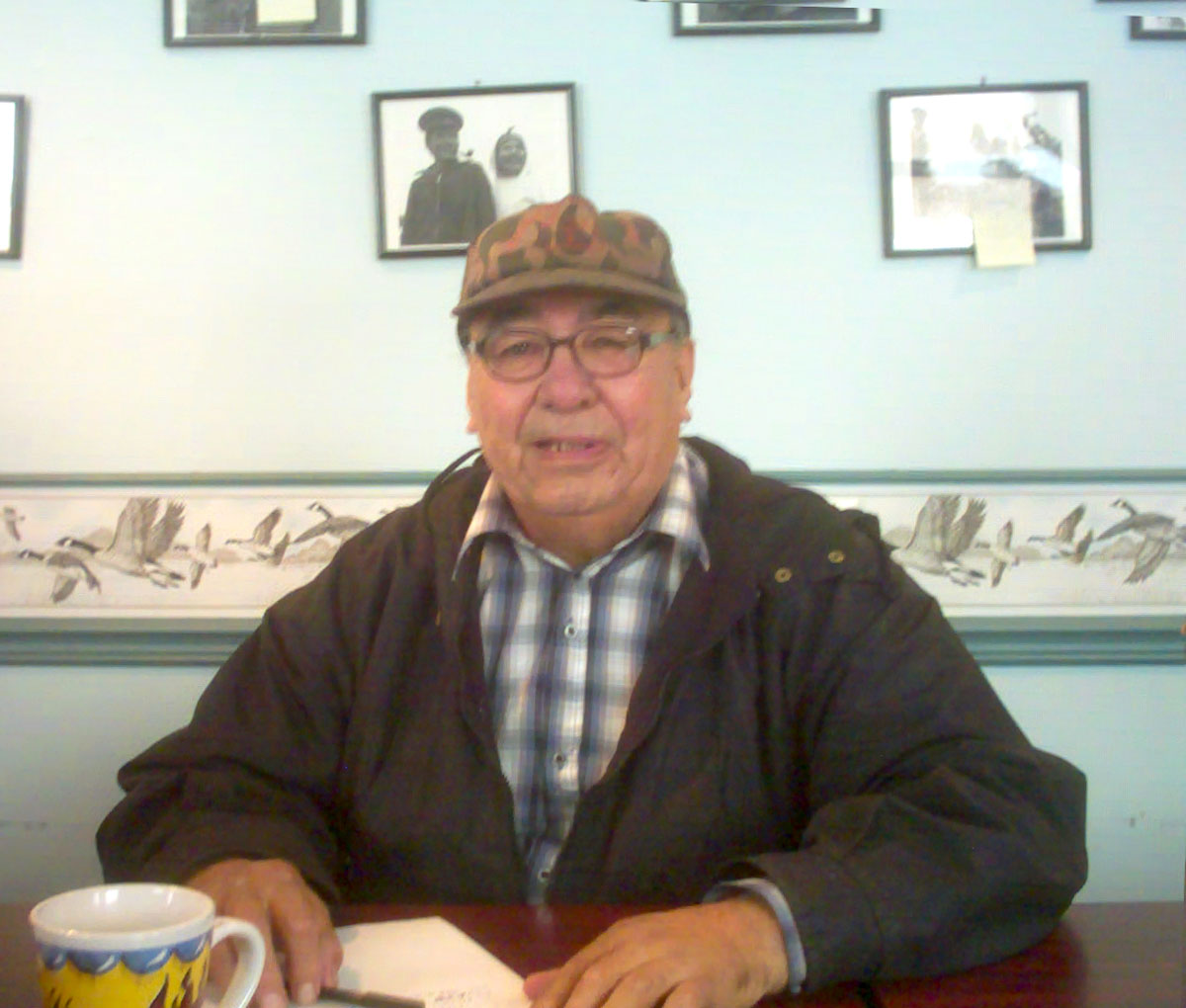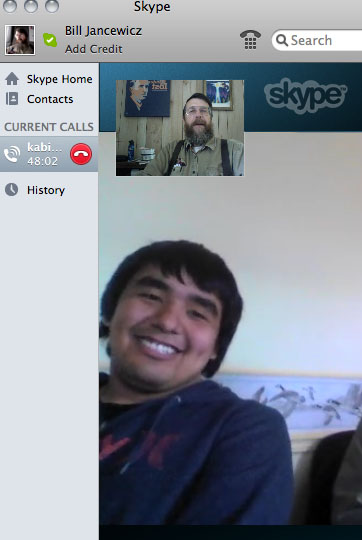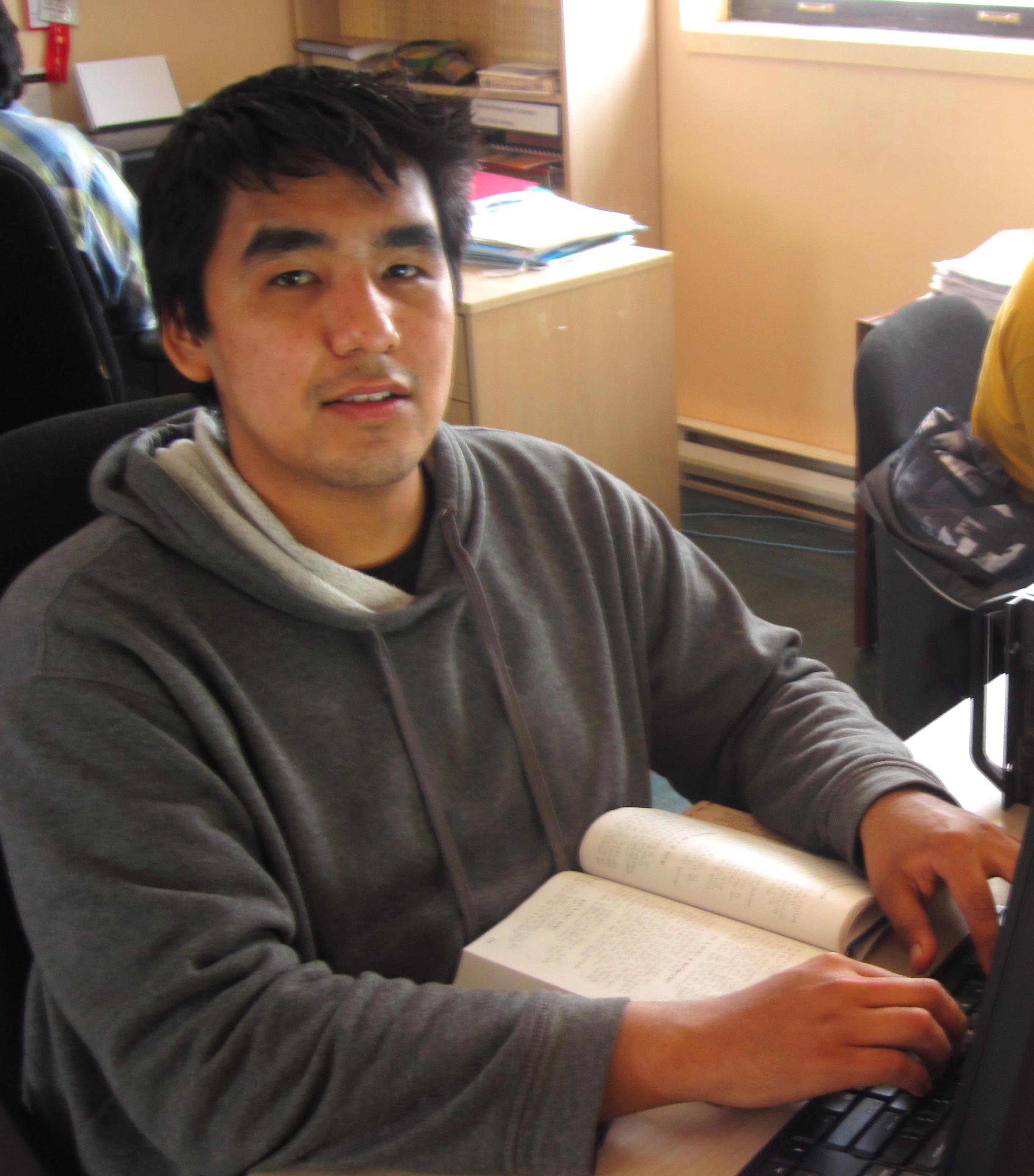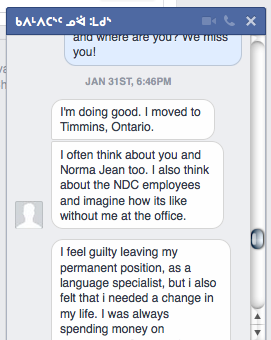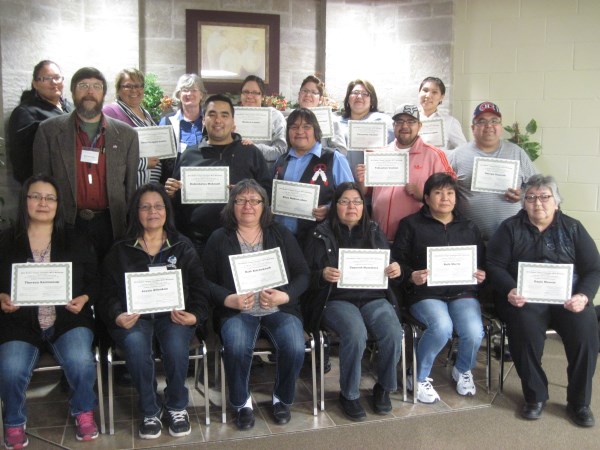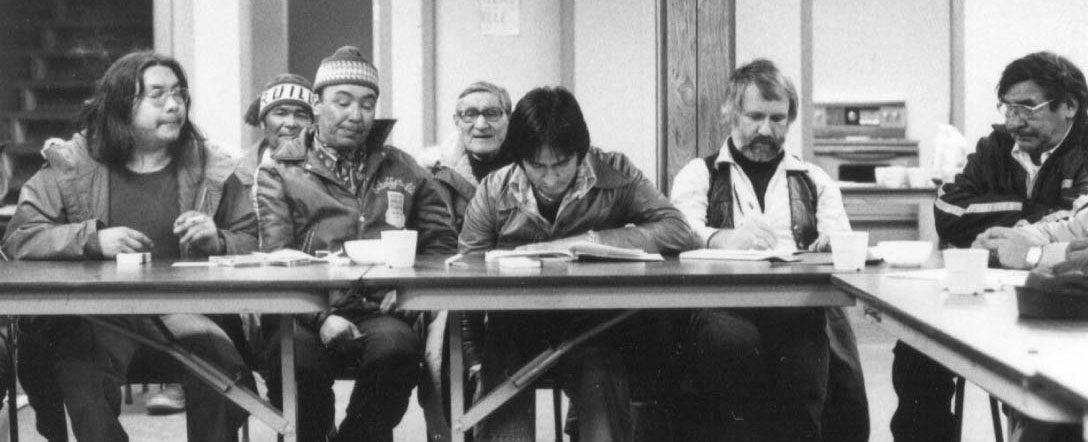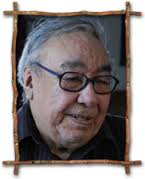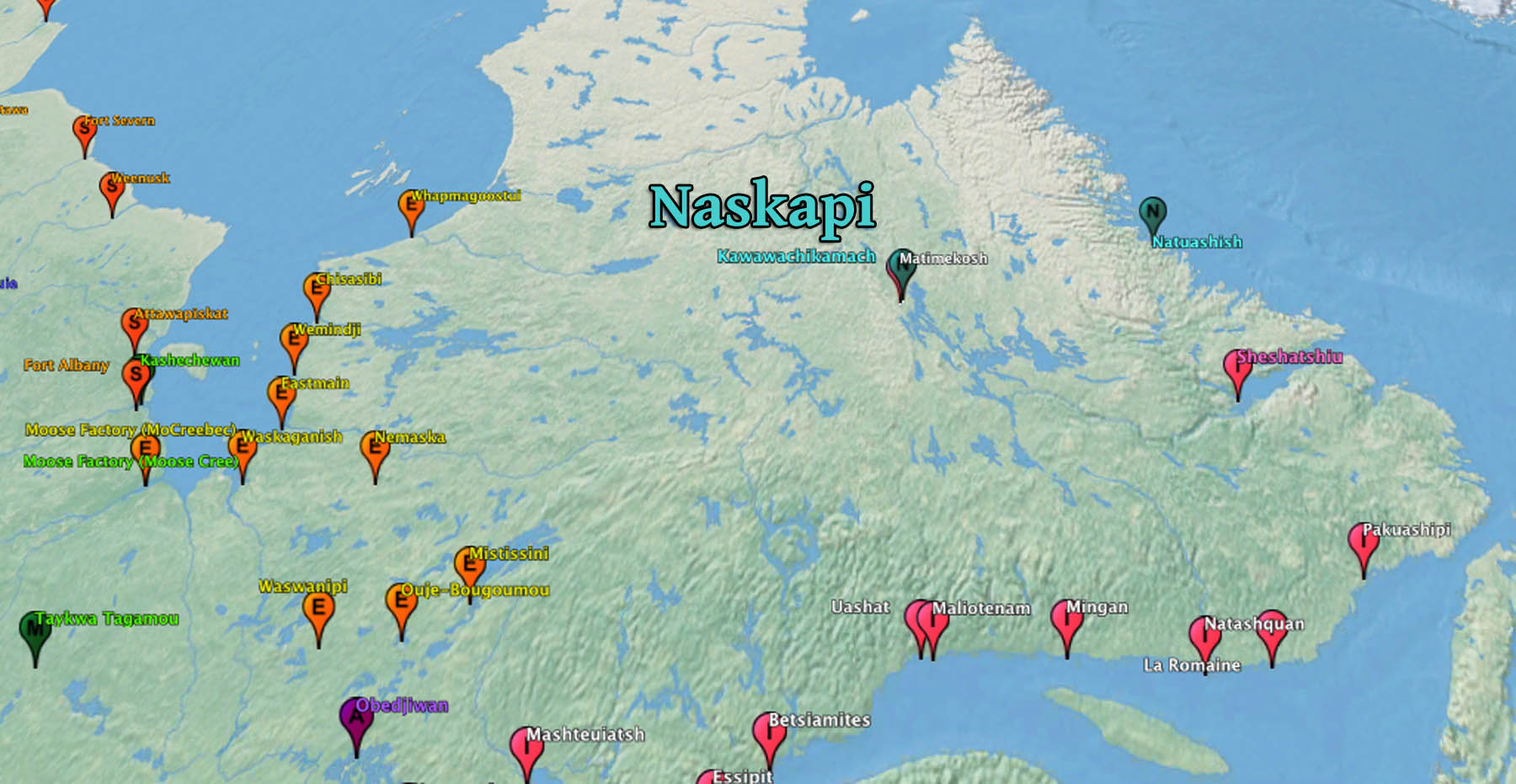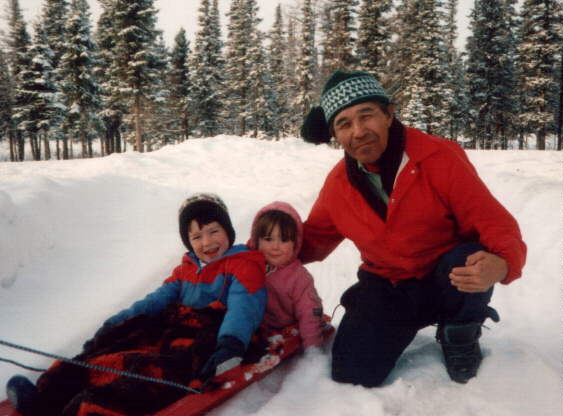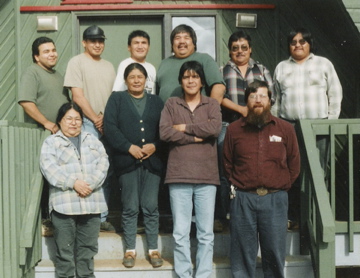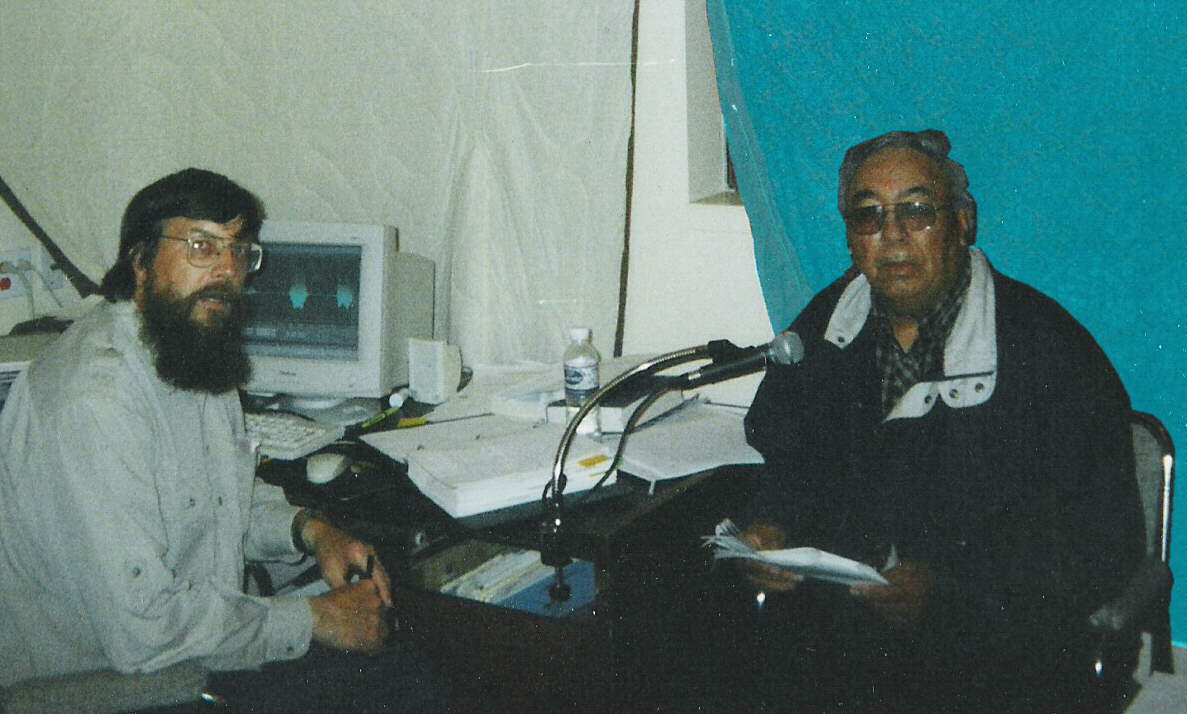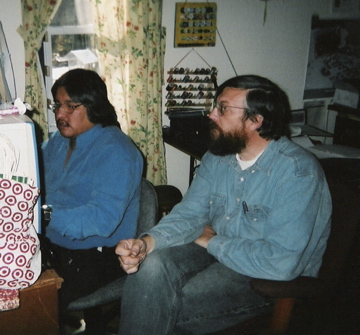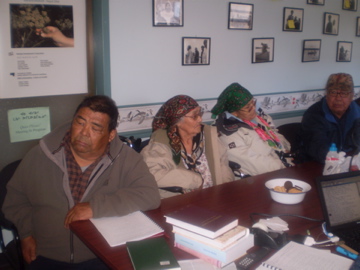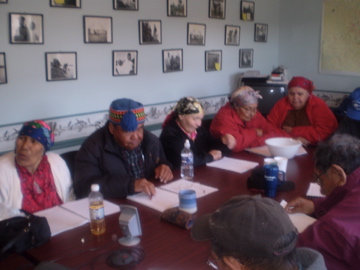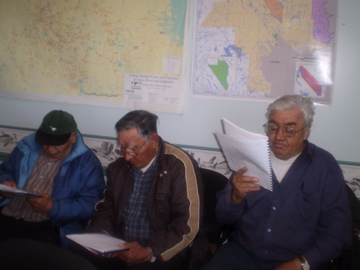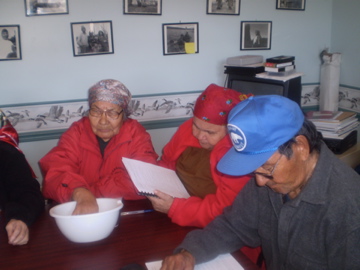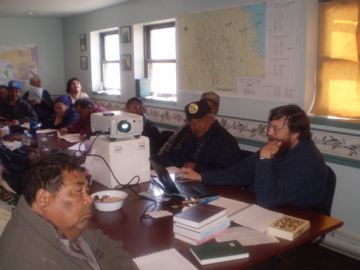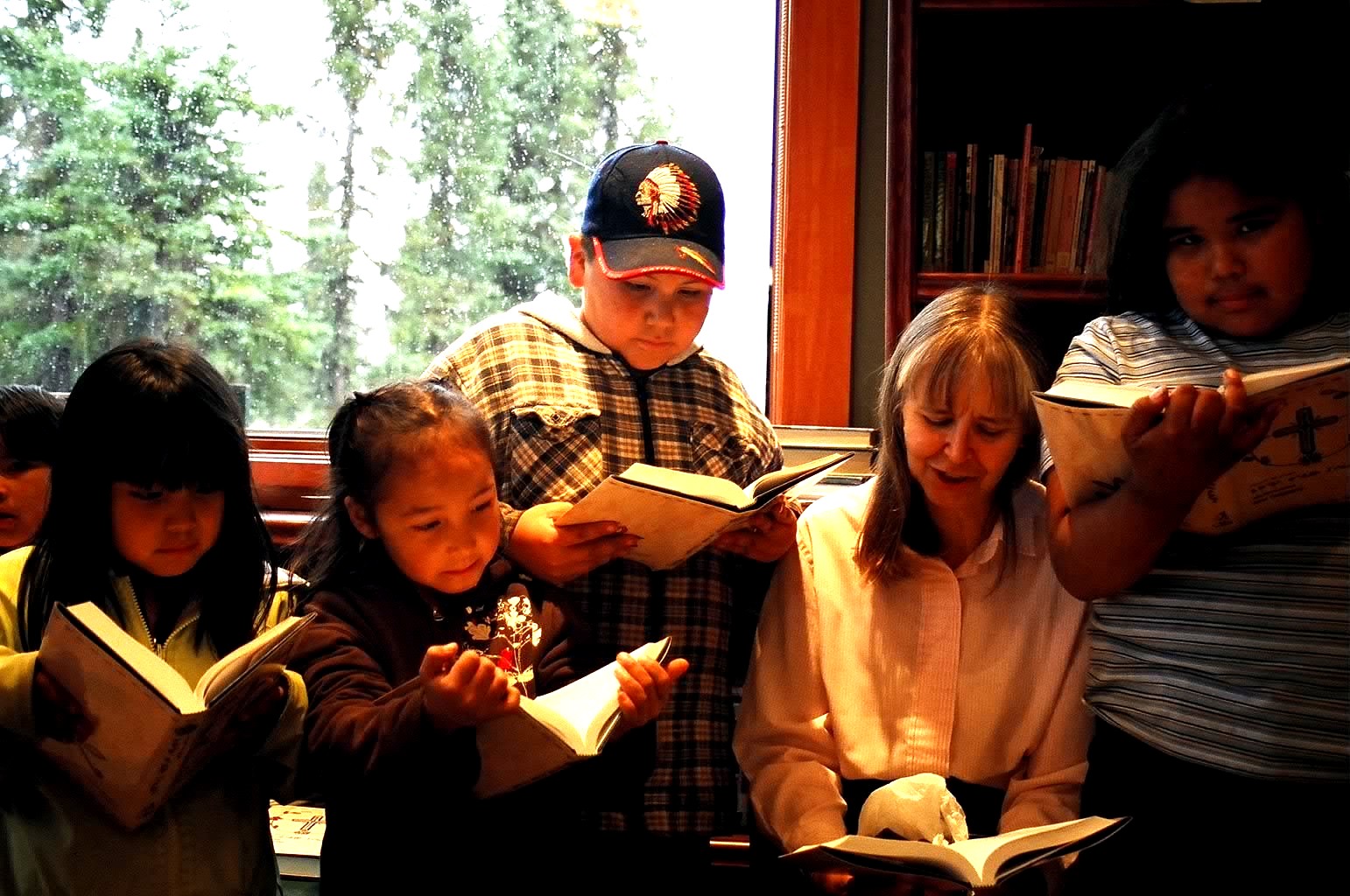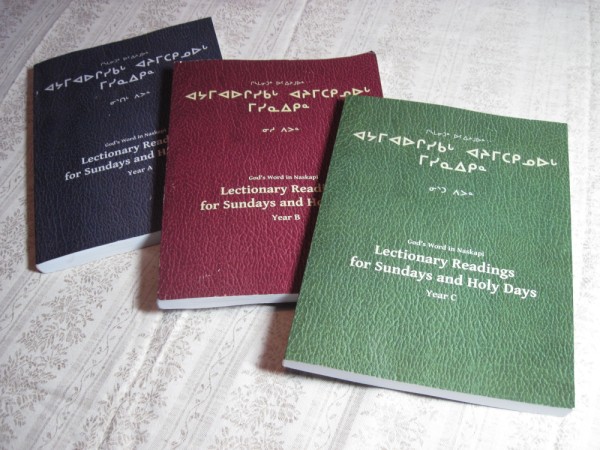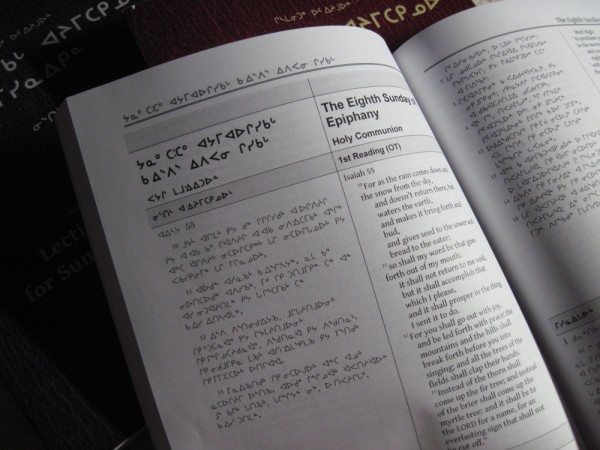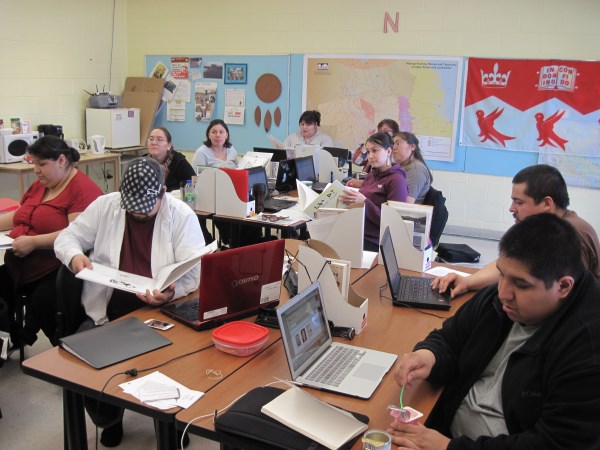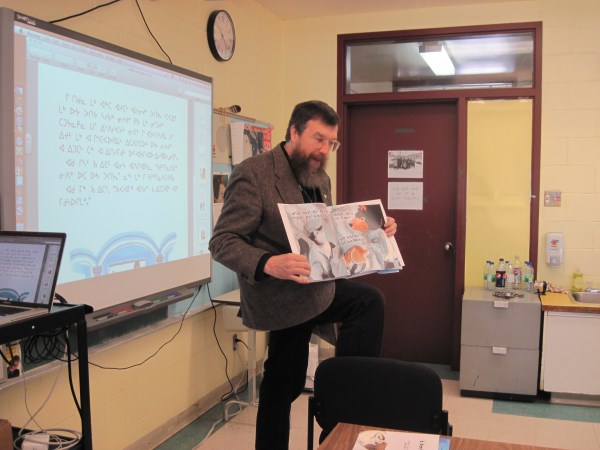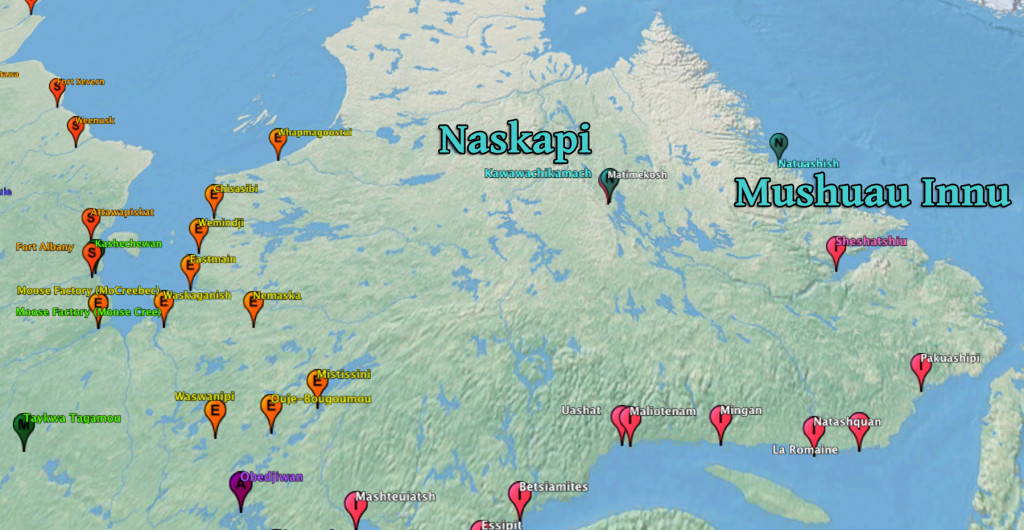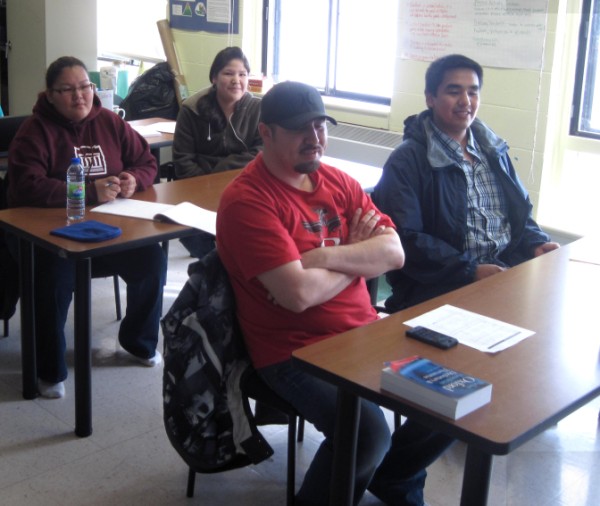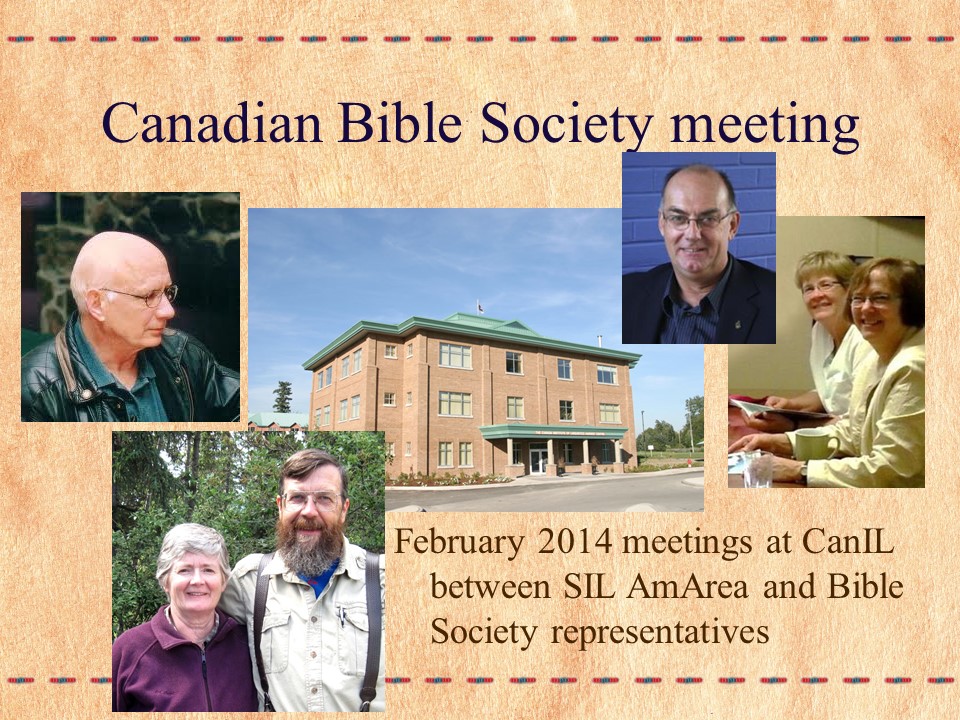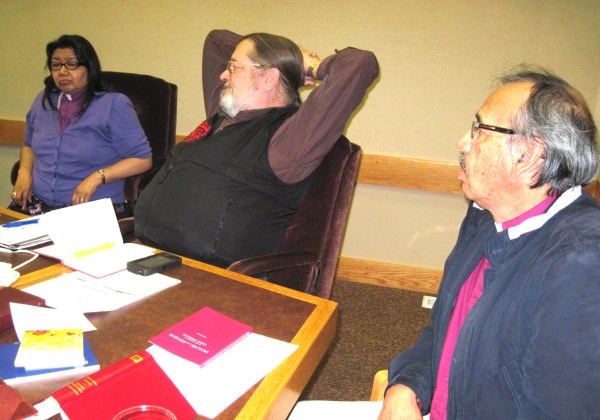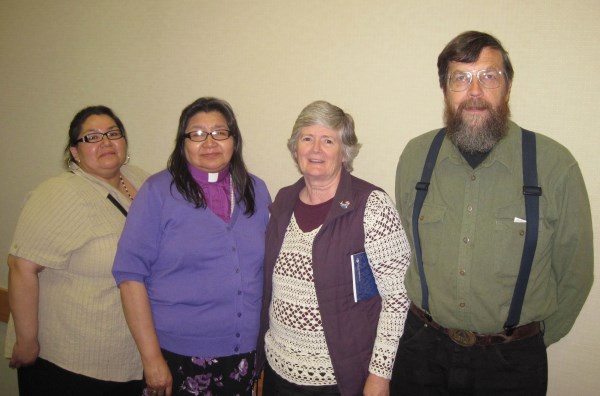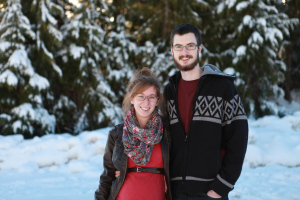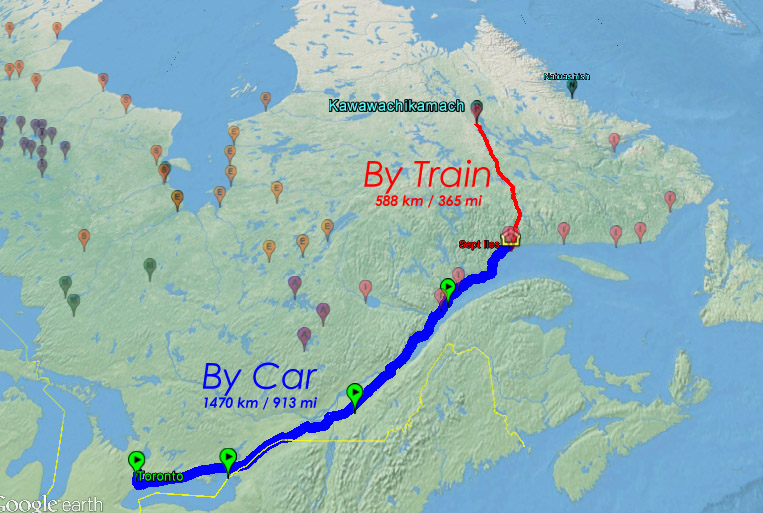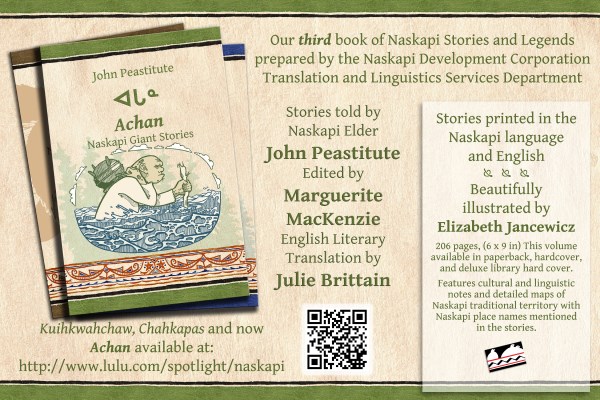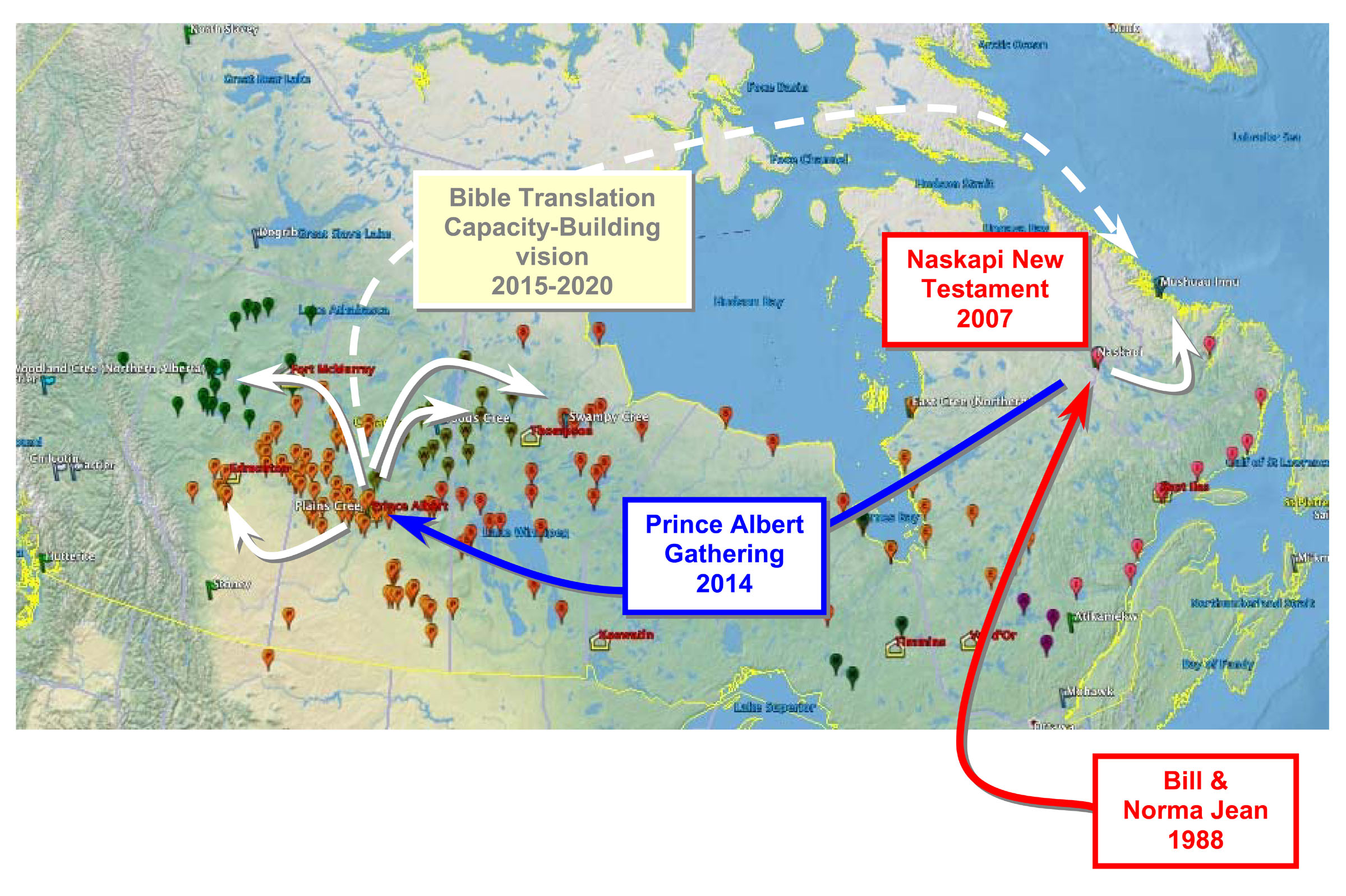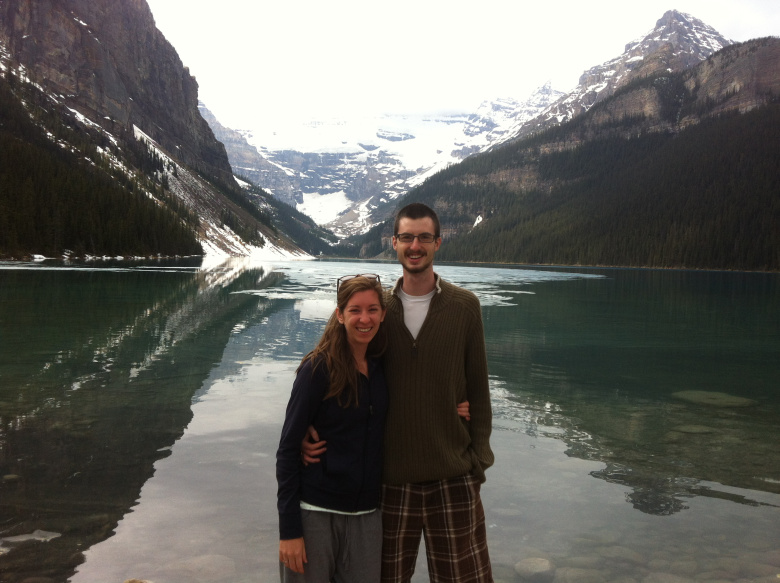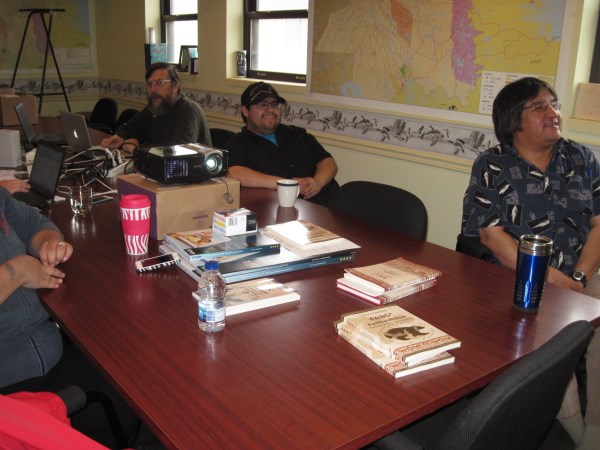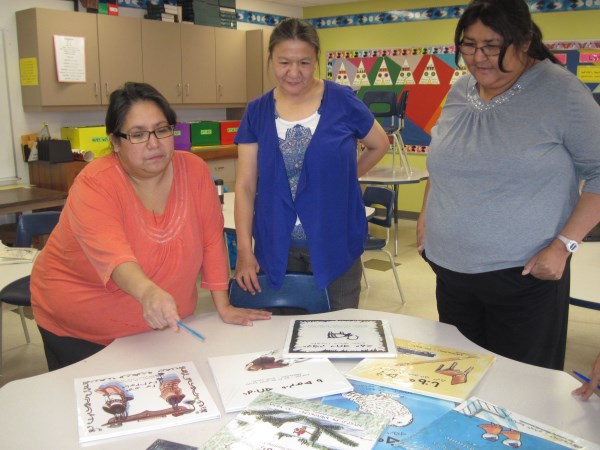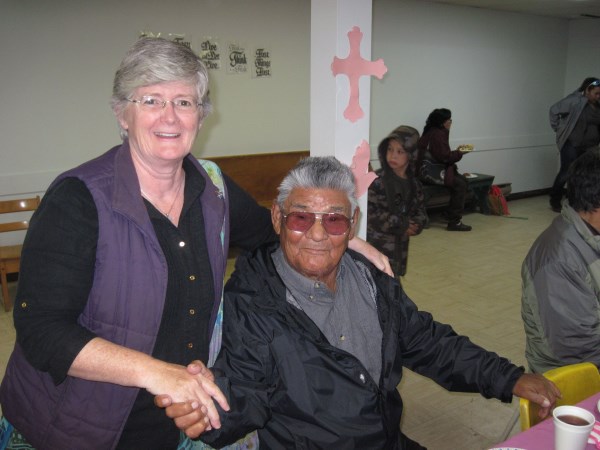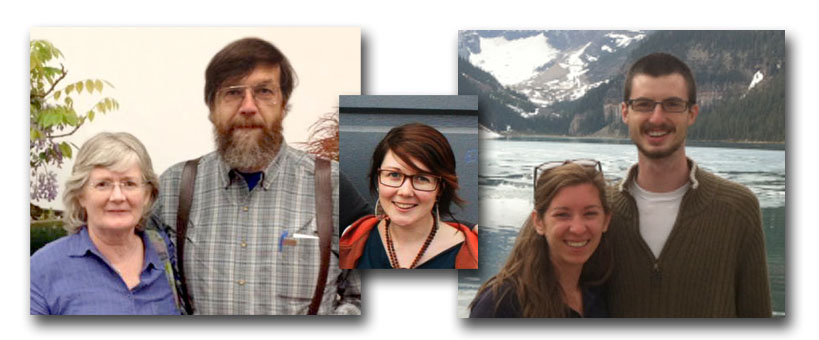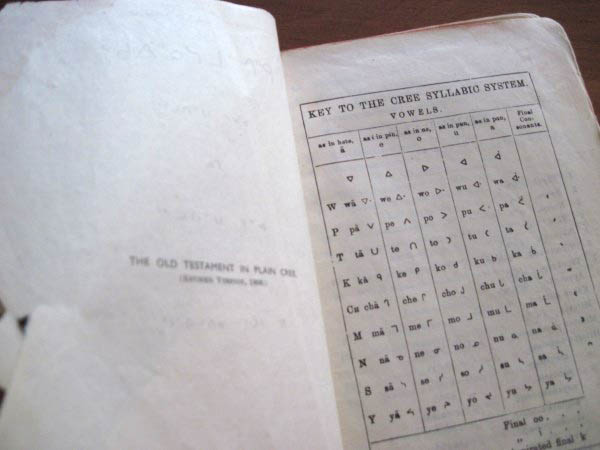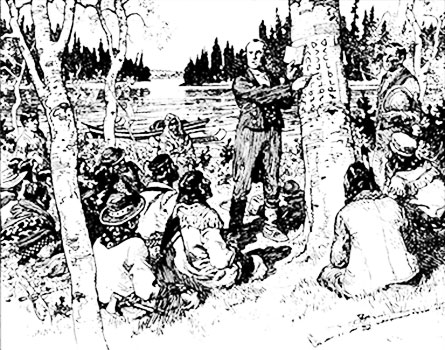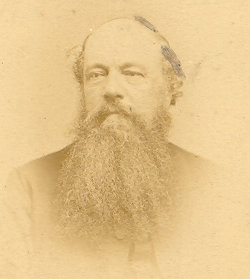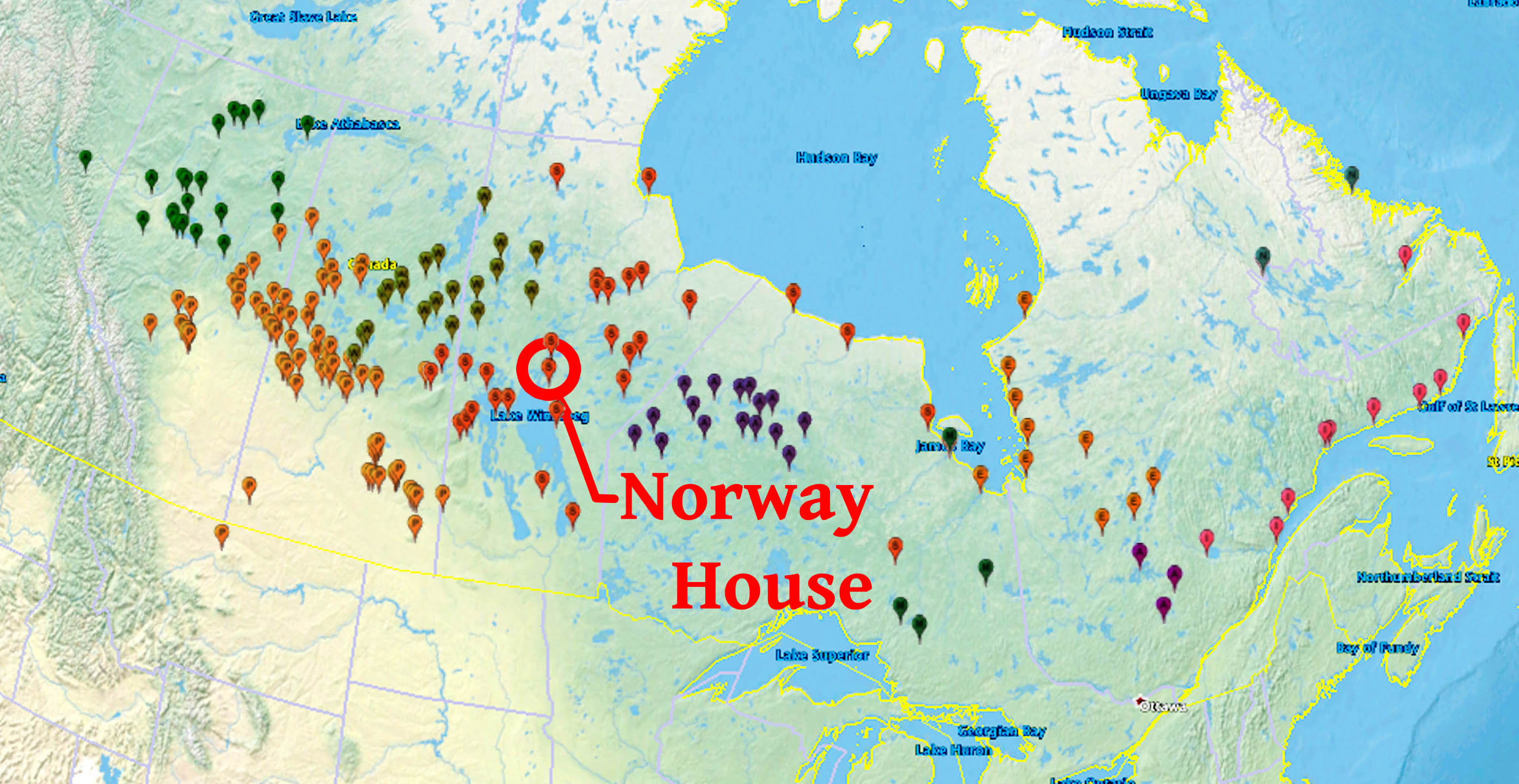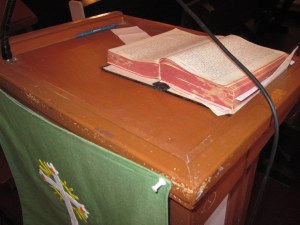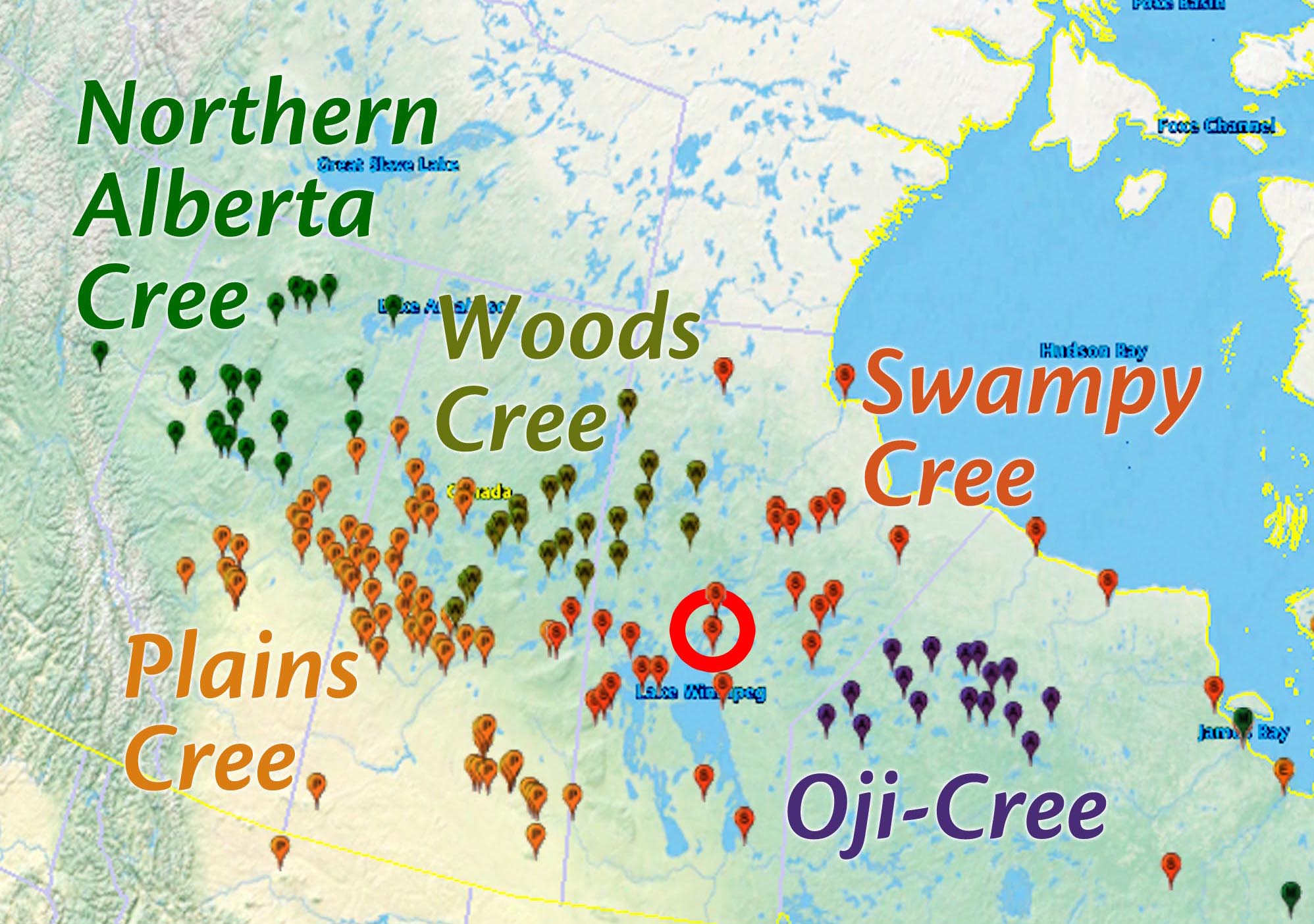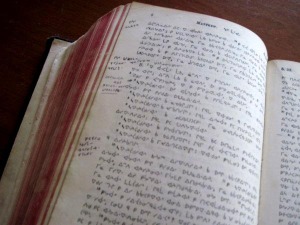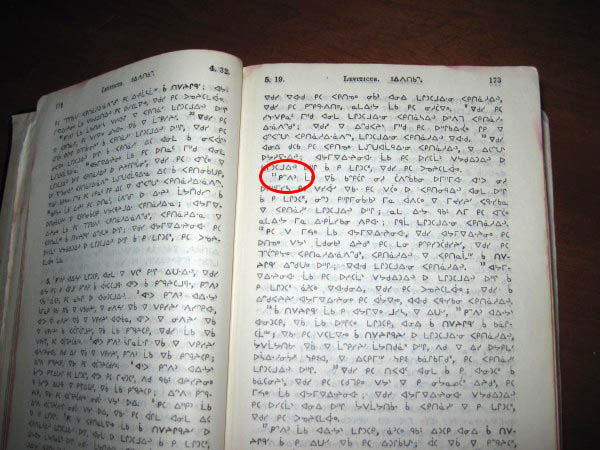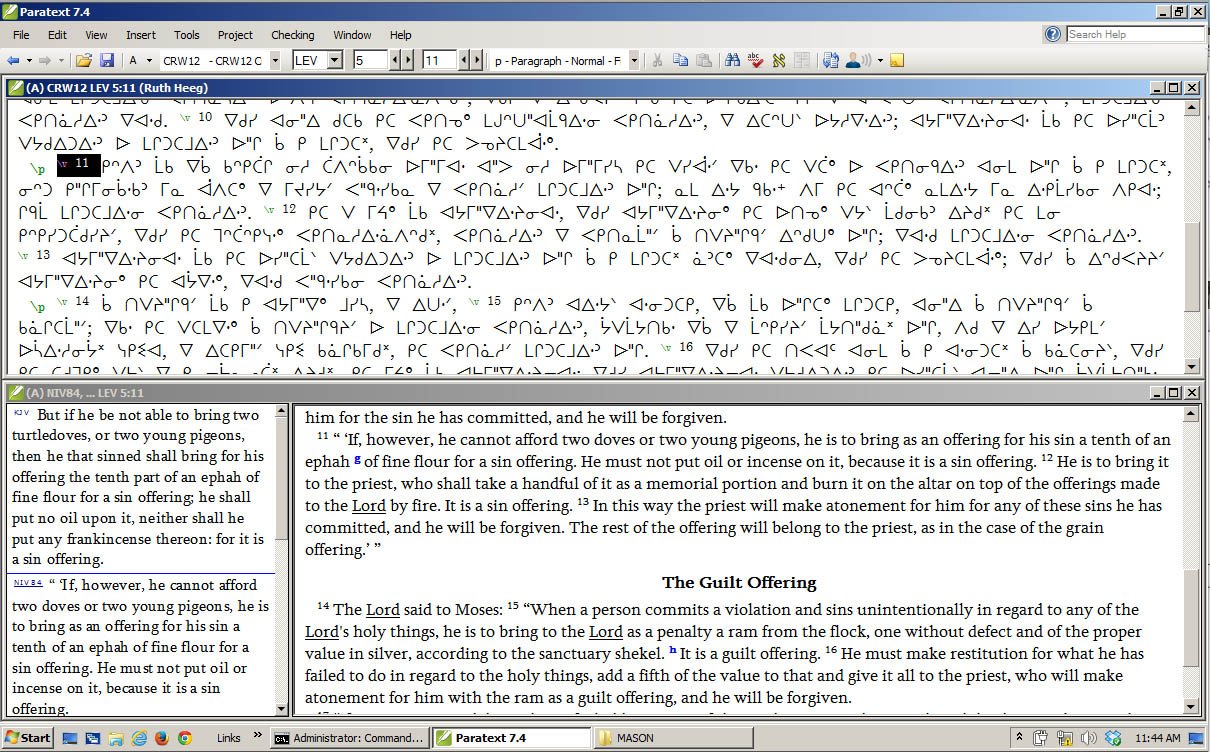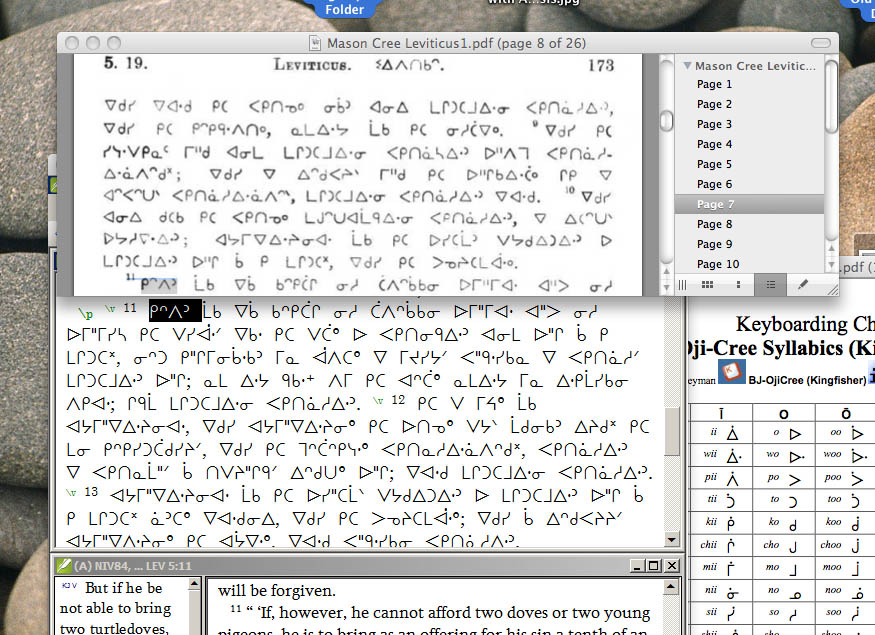Our Dear Partners,
After the First Nations Bible Translation Capacity-Building Gathering that was held at Prince Albert, Saskatchewan in 2014, there were several projects that were prioritized, including work on Oji-Cree, Cree and Naskapi Bible translation projects, along with activities focused on building the capacity of the local communities to accomplish these translation goals. One necessary part of capacity-building includes the recruitment and training of new Bible Translation facilitator teams to work alongside language speakers in their communities in the north.
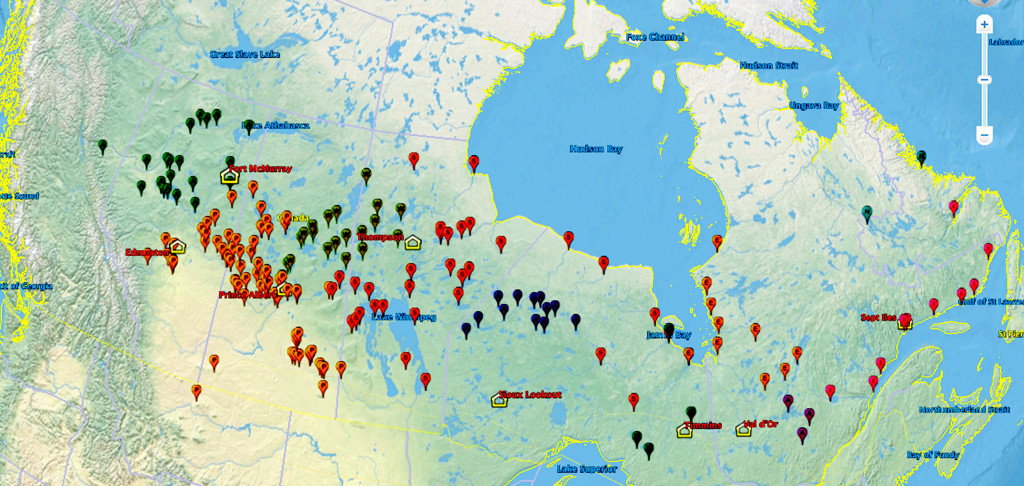 A key part of the preparation for these Bible Translation facilitator teams is a period of in-field training and language service with the Naskapi translation project. During this time of gaining experience living in an isolated northern First Nations community, the new teams will serve the Naskapi as Linguistics Interns, taking part in the facilitation of a real ongoing language program there.
A key part of the preparation for these Bible Translation facilitator teams is a period of in-field training and language service with the Naskapi translation project. During this time of gaining experience living in an isolated northern First Nations community, the new teams will serve the Naskapi as Linguistics Interns, taking part in the facilitation of a real ongoing language program there.
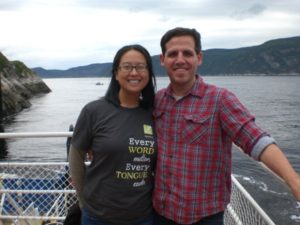 To help the new teams with a smoother transition to their in-field training period, they accompany us on one of our working trips to the Naskapi community. In August of 2016, Martin and Alice Reed came with us to visit the Naskapi community of Kawawachikamach, as their part of their introduction to the situation in Canadian First Nations, as well as a chance for us to get to know them better.
To help the new teams with a smoother transition to their in-field training period, they accompany us on one of our working trips to the Naskapi community. In August of 2016, Martin and Alice Reed came with us to visit the Naskapi community of Kawawachikamach, as their part of their introduction to the situation in Canadian First Nations, as well as a chance for us to get to know them better.
 You may remember that last year at this time, Matthew and Caitlin Windsor accompanied us to Kawawachikamach on a similar visit. You can read about that trip at this link here <link>.
You may remember that last year at this time, Matthew and Caitlin Windsor accompanied us to Kawawachikamach on a similar visit. You can read about that trip at this link here <link>.
On this year’s trip, beginning August 21, we picked up Alice and Martin at the Buffalo, NY airport, and from there we drove for the next three days together up through southern Ontario along the north shore of the St. Lawrence in Quebec to Sept-Iles, were we boarded the train to Schefferville. The train ride this time was 16 hours, arriving at Schefferville near midnight. We arrived at the Naskapi community of Kawawachikamach in the wee hours of Friday morning, August 26.
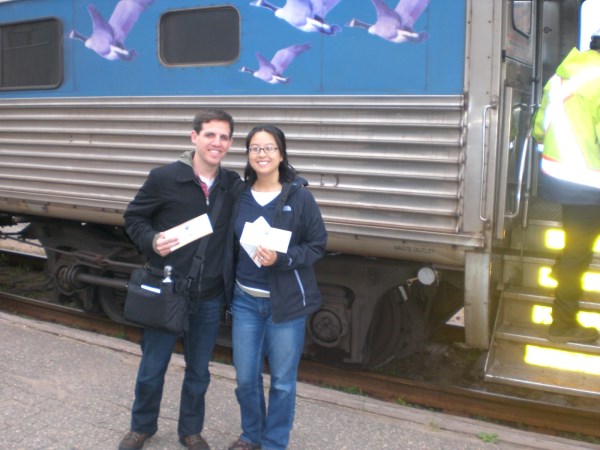
 Naskapi Exodus Checking
Naskapi Exodus Checking
We were met there in Kawawachikamach by translation consultant Watson Williams and his wife Linda. Watson had already been there in the Naskapi community working with the Naskapi translators on the exegetical checking for the book of Exodus for the previous two weeks.
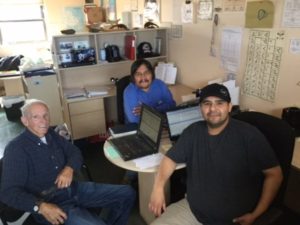 The book of Exodus: the story of Moses, the deliverance of the people of Israel from Egypt and the establishment of the covenant with God’s people is 40 chapters long and contains more than 1200 verses. It has been one of the major projects in the Naskapi translation program since the publication of the Naskapi New Testament in 2007. Naskapi translator Tshiueten Vachon completed the first draft of this book earlier this year. When Watson heard that the book needed to be checked, he volunteered to come out of “retirement” and return to the Naskapi community again to help them accomplish this check. Watson had been the main consultant who helped the Naskapi team with their New Testament checking a decade ago, and also checked the Old Testament Lectionary lessons in 2010. He works very well with the Naskapi translators, and is well-loved by the Naskapi people, and we are all very grateful that he was able to come with Linda to work with the team.
The book of Exodus: the story of Moses, the deliverance of the people of Israel from Egypt and the establishment of the covenant with God’s people is 40 chapters long and contains more than 1200 verses. It has been one of the major projects in the Naskapi translation program since the publication of the Naskapi New Testament in 2007. Naskapi translator Tshiueten Vachon completed the first draft of this book earlier this year. When Watson heard that the book needed to be checked, he volunteered to come out of “retirement” and return to the Naskapi community again to help them accomplish this check. Watson had been the main consultant who helped the Naskapi team with their New Testament checking a decade ago, and also checked the Old Testament Lectionary lessons in 2010. He works very well with the Naskapi translators, and is well-loved by the Naskapi people, and we are all very grateful that he was able to come with Linda to work with the team.

 We were there with Martin and Alice to observe the last day of checking, and they were able to see first-hand Watson’s procedure of working with the translators, asking questions, verifying the accuracy of the translation, and making suggestions for improvements. On that last day, the translation team completed the checking through the end of chapter 30 of Exodus, about 73% of the book. Watson then provided the translators with a detailed series of steps that they can follow so that in the weeks to come they can finish checking the remaining 325 verses with Watson “off-site”, communicating their questions and answers by internet.
We were there with Martin and Alice to observe the last day of checking, and they were able to see first-hand Watson’s procedure of working with the translators, asking questions, verifying the accuracy of the translation, and making suggestions for improvements. On that last day, the translation team completed the checking through the end of chapter 30 of Exodus, about 73% of the book. Watson then provided the translators with a detailed series of steps that they can follow so that in the weeks to come they can finish checking the remaining 325 verses with Watson “off-site”, communicating their questions and answers by internet.
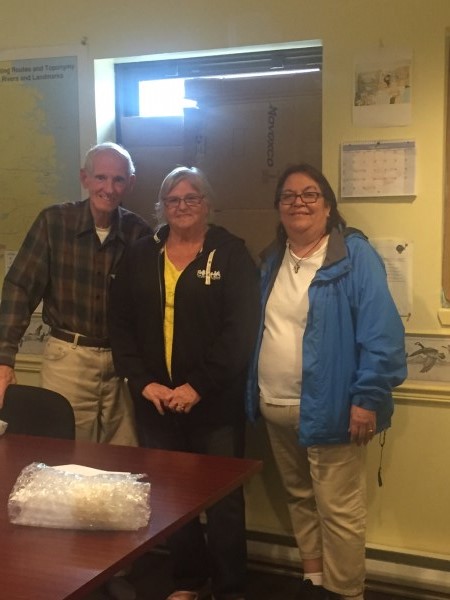
Watson with his wife Linda, and Ruby Sandy-Robinison administrator of the Naskapi Development Corporation
It was an excellent opportunity for Martin and Alice to see Watson at work with team.
Naskapi Literature Production
If you can read the Bible yourself, it’s because you can read. If you can read (thank a teacher!) it’s because you can and have read many, many other books in your own language. Naskapi reading and writing is now taught at the Naskapi school in the early years as the language of instruction, and while there is a growing collection of children’s books in Naskapi, it is also important to have good quality Naskapi language literature by Naskapi authors, suitable for all ages. One project we have been helping to coordinate with the Naskapi translators is the production of a book series of traditional stories and legends. 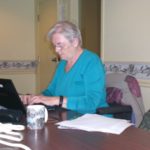 We work with the Naskapi translation team and a consultant linguist, Dr. Marguerite MacKenzie, professor emeritus from Memorial University of Newfoundland. We arrived the same week that the fourth volume in this series “The Giant Eagle and other stories” was released in the community and online, and also took part in the transcription and linguistic analysis of the next set of stories for the next volumes.
We work with the Naskapi translation team and a consultant linguist, Dr. Marguerite MacKenzie, professor emeritus from Memorial University of Newfoundland. We arrived the same week that the fourth volume in this series “The Giant Eagle and other stories” was released in the community and online, and also took part in the transcription and linguistic analysis of the next set of stories for the next volumes.
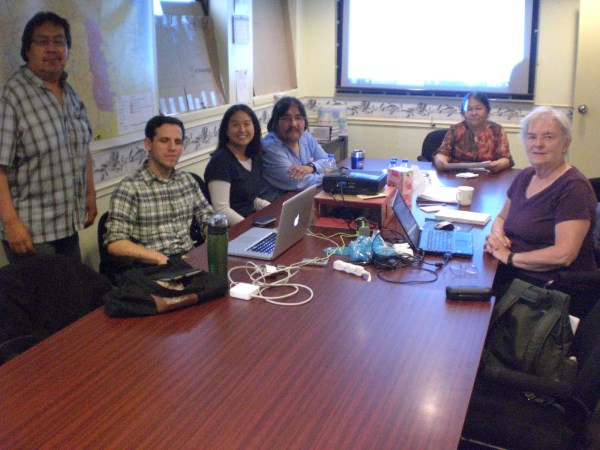
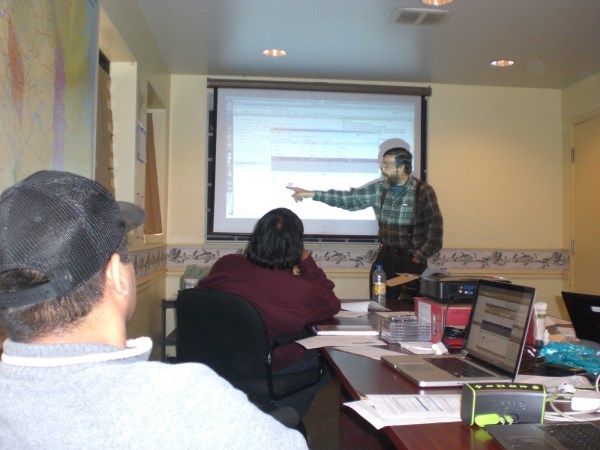
 Again, having Martin and Alice participate in the day-to-day work by the Naskapi translators working with the consultant linguists gave them another excellent opportunity to experience another facet of language development work.
Again, having Martin and Alice participate in the day-to-day work by the Naskapi translators working with the consultant linguists gave them another excellent opportunity to experience another facet of language development work.
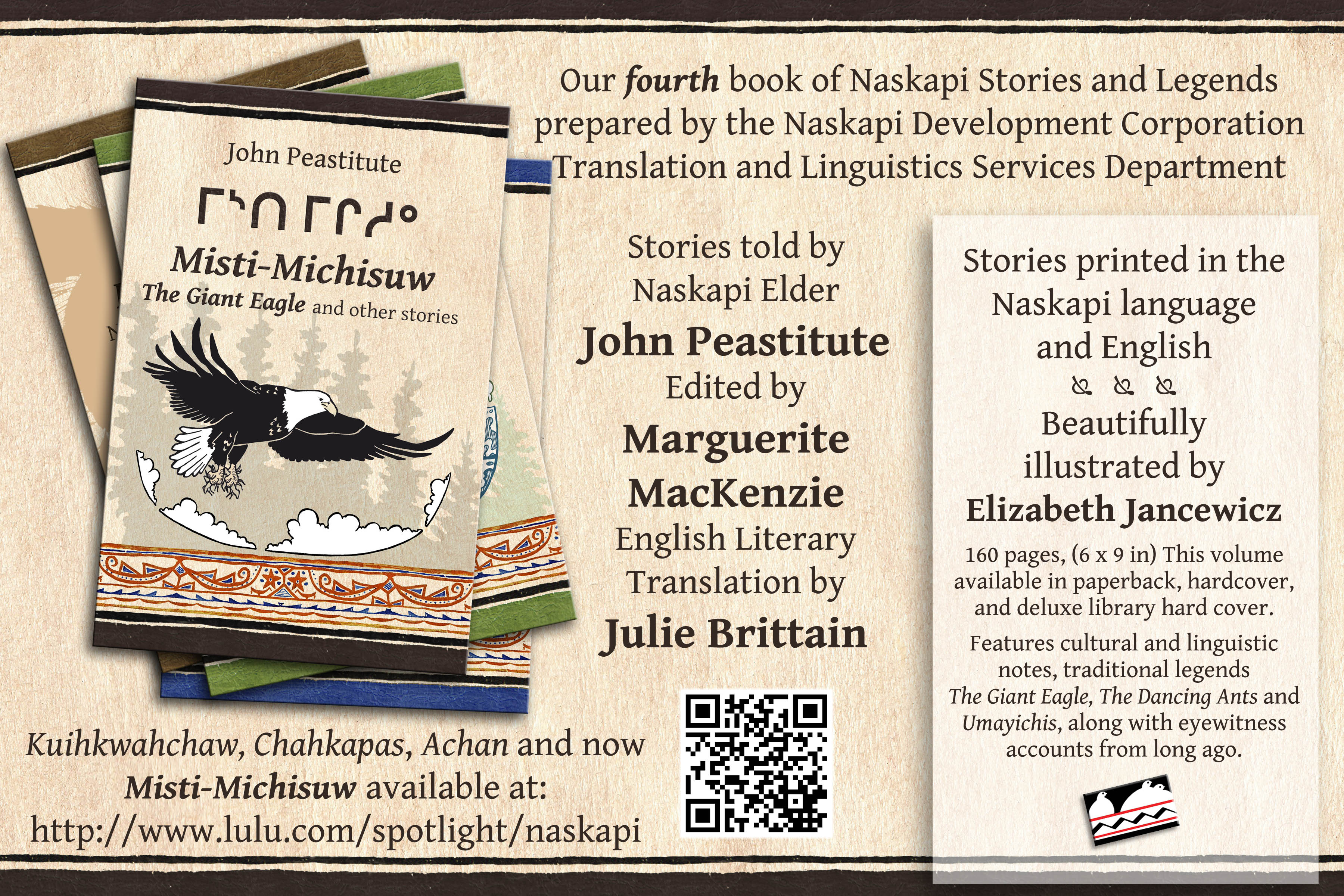 The Giant Eagle and other stories book in Naskapi also contains a literary English translation, linguistic and cultural notes, and beautiful illustrations by our daughter Elizabeth. They are now available with all the other Naskapi language materials online at this website: <link>
The Giant Eagle and other stories book in Naskapi also contains a literary English translation, linguistic and cultural notes, and beautiful illustrations by our daughter Elizabeth. They are now available with all the other Naskapi language materials online at this website: <link>
Language, Culture and Relationships
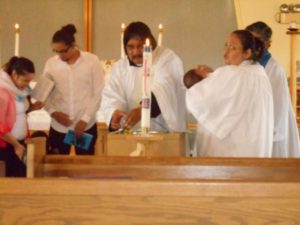 Along with our work activities that Alice and Martin eagerly participated in, they also had excellent opportunities to get to know about the people and the place where God has called us to serve and begin to get accustomed to what it’s like to work in a remote northern First Nations community. We all attended Naskapi church services, a baby christening celebration, and several community cultural events that were taking place during the days we were in Kawawachikamach. Alice and Martin began to learn to speak a few Naskapi phrases, started to think about Algonquian grammatical structure, learn about gathering and processing traditional Naskapi medications, and participate in a community fishing derby.
Along with our work activities that Alice and Martin eagerly participated in, they also had excellent opportunities to get to know about the people and the place where God has called us to serve and begin to get accustomed to what it’s like to work in a remote northern First Nations community. We all attended Naskapi church services, a baby christening celebration, and several community cultural events that were taking place during the days we were in Kawawachikamach. Alice and Martin began to learn to speak a few Naskapi phrases, started to think about Algonquian grammatical structure, learn about gathering and processing traditional Naskapi medications, and participate in a community fishing derby.
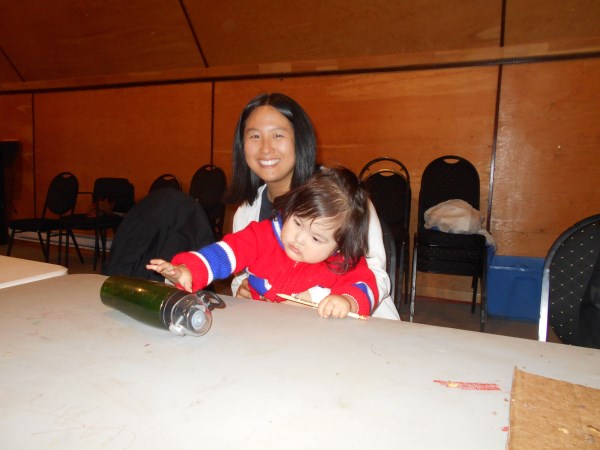
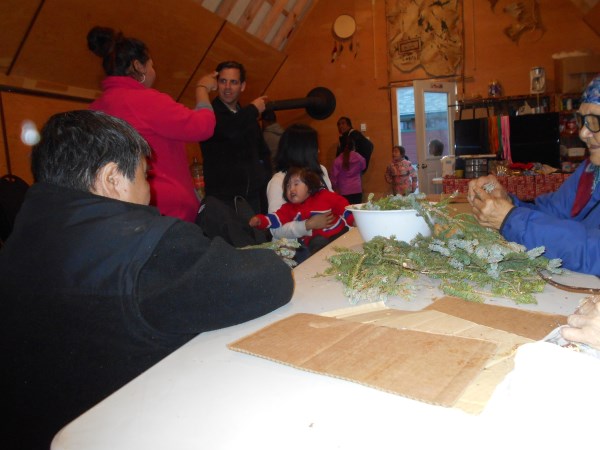
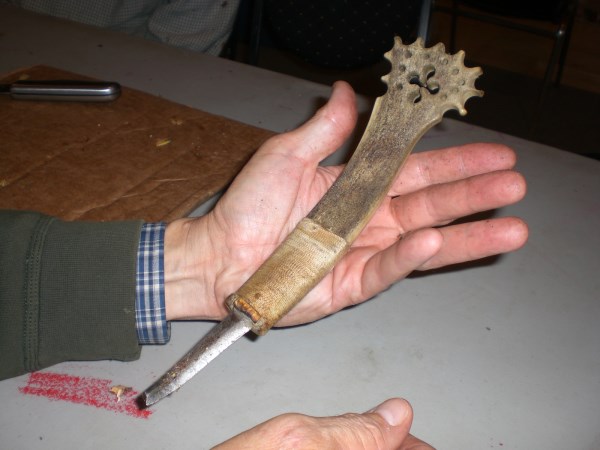
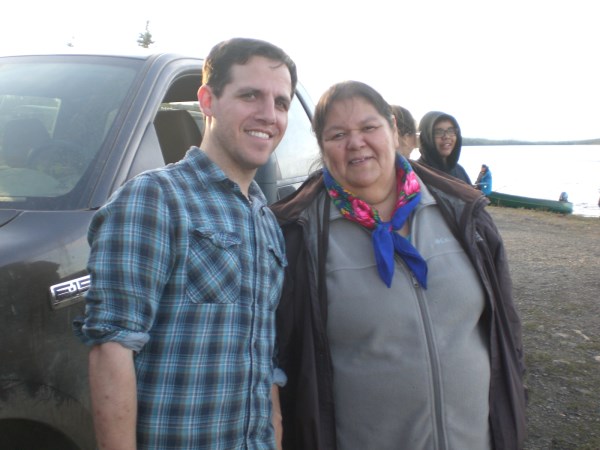
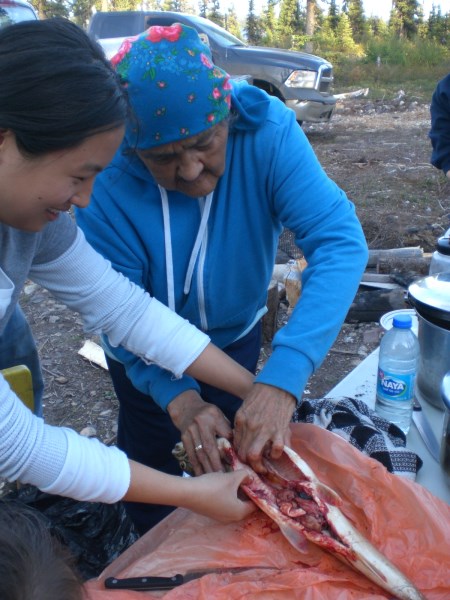
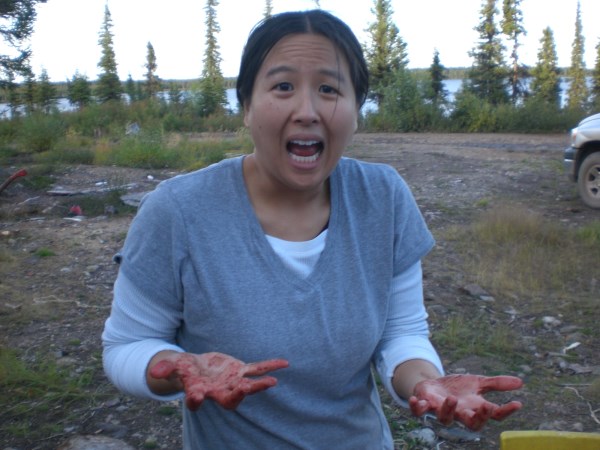 The relationship-building went in both directions too, as the Naskapi welcomed them into their lives and activities, and clearly let them know that the Naskapi themselves are looking forward to the days when Alice and Martin will be able to spend a longer period of service and getting to know the people at Kawawachikamach better.
The relationship-building went in both directions too, as the Naskapi welcomed them into their lives and activities, and clearly let them know that the Naskapi themselves are looking forward to the days when Alice and Martin will be able to spend a longer period of service and getting to know the people at Kawawachikamach better.
 Linguistics Internships
Linguistics Internships
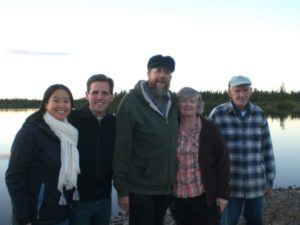 Some have asked if the new teams that God is sending to work with us are our “replacements”. Well, not exactly. It became clear that God is at work in many First Nations communities across Northern Canada, and that for us to simply move on to another language project after Naskapi would not nearly begin to meet the need, besides the fact that the Naskapi team still needs continued support. So in answer to your prayers God has called additional Bible Translation facilitation teams Matt and Caitlin Windsor and Alice and Martin Reed to serve in some of these other First Nations Bible Translation projects.
Some have asked if the new teams that God is sending to work with us are our “replacements”. Well, not exactly. It became clear that God is at work in many First Nations communities across Northern Canada, and that for us to simply move on to another language project after Naskapi would not nearly begin to meet the need, besides the fact that the Naskapi team still needs continued support. So in answer to your prayers God has called additional Bible Translation facilitation teams Matt and Caitlin Windsor and Alice and Martin Reed to serve in some of these other First Nations Bible Translation projects.
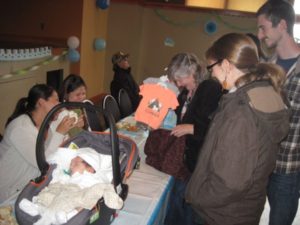 They are both working on building up a team of partners who will pray for and support their work through Wycliffe Bible Translators, and they are completing their final preparations to leave home to work in an isolated northern community to do this. Since the languages are all closely related, and the values and culture of these language communities share a lot in common, their planned in-field training period serving in a linguistics internship with Naskapi for several months will continue to support the Naskapi project in signific
They are both working on building up a team of partners who will pray for and support their work through Wycliffe Bible Translators, and they are completing their final preparations to leave home to work in an isolated northern community to do this. Since the languages are all closely related, and the values and culture of these language communities share a lot in common, their planned in-field training period serving in a linguistics internship with Naskapi for several months will continue to support the Naskapi project in signific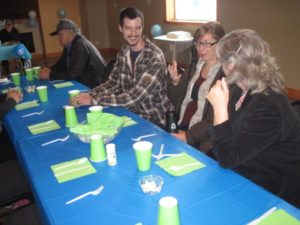 ant ways, moving the Naskapi team closer to a sustainable level of capacity, while also giving the new teams the practical skills and experience that they will need to work in the language communities that are still waiting for God’s Word in their mother tongues.
ant ways, moving the Naskapi team closer to a sustainable level of capacity, while also giving the new teams the practical skills and experience that they will need to work in the language communities that are still waiting for God’s Word in their mother tongues.
This will also enable us to leverage our own experience so that we can support these new teams as mentors, while God continues to use us to assist the other language projects where we have the privilege to serve.
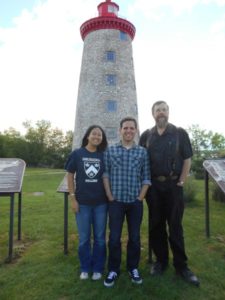 Both the Windsors and the Reeds hope to begin their Linguistics Internships with the Naskapi project sometime in 2017, and be ready to move on to another language community, such as Cree, Oji-Cree, or Innu, who even now are still waiting for the scriptures in their language.
Both the Windsors and the Reeds hope to begin their Linguistics Internships with the Naskapi project sometime in 2017, and be ready to move on to another language community, such as Cree, Oji-Cree, or Innu, who even now are still waiting for the scriptures in their language.
Prayer Requests
Please continue to pray for Alice and Martin Reed, and for Matthew and Caitin Windsor, as they continue to prepare themselves and seek adequate support so that they may move to the north and begin their internships.
- Get current prayer requests and connect with the Windsors here: https://thewindsorsupnorth.com/
- Get current prayer requests and connect with the Reeds here: https://www.wycliffe.org/partner/reed
Pray for us that we will be sensitive to God’s leading and faithful to His call as we provide guidance to these new teams.
Pray for the First Nations language communities that we have already begun to work alongside of, and for those who are still waiting to have the message of God’s love and hope in their own languages.
Pray for the Naskapi team as they finish the book of Exodus and learn to work on their language program with more and more confidence and ability.
Thank you for your own interest, support and encouragement for this work that God is doing in minority First Nations language communities in Canada.
Serving with you,
Bill and Norma Jean
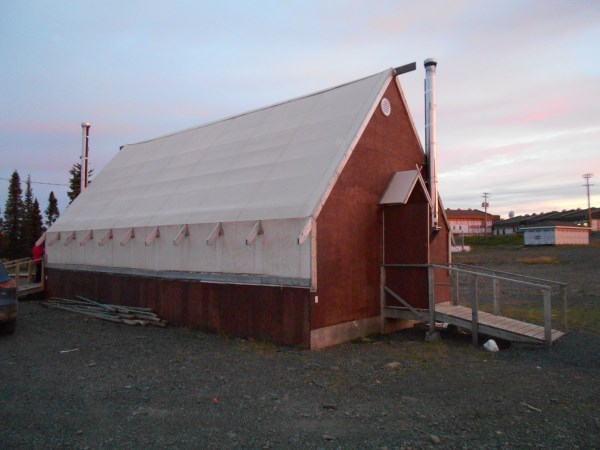
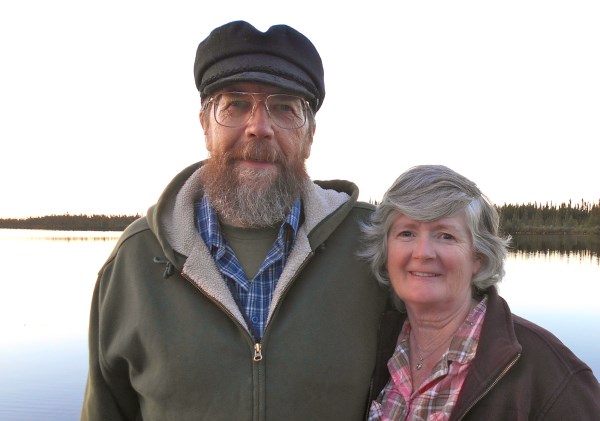 Consider becoming more involved and supporting this work by visiting these websites:
Consider becoming more involved and supporting this work by visiting these websites:
In the USA: https://www.wycliffe.org/partner/Jancewicz
In Canada: http://www.wycliffe.ca/m?Jancewicz

